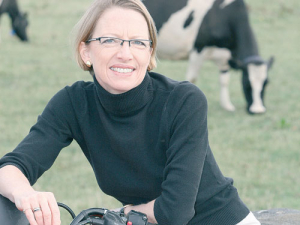Robust talk about the environment will be on the agenda at the East Coast Farming Expo, whose organisers will shine a light on this hotly debated aspect of farming.
The expo will be held on April 11 and 12 at the Wairoa A and P Showground.
The environment is “everything” says Jacqueline Rowarth, formerly a professor of agribusiness at the University of Waikato and until recently chief scientist at the Environmental Protection Authority.
“It’s land, water, sky... as well as raising social, political and economic considerations,” Rowarth says.
“The big issue is sustainability,” she says. “For a soil scientist this means maintaining or improving productivity, decreasing risk to production, maintaining or improving soil and water quality, and being socially acceptable and economically viable.”
Rowarth says farmers are acutely environmentally aware: “their land is their heritage and livelihood”.
And research has shown farmers and the industry even better ways to operate, she says.
“The farming sector generally leads productivity gains for the country, and New Zealand farmers are recognised globally as being extremely innovative; they’ve had to be.
“The rest of the developed world is cushioned with subsidies. NZ products are produced with very high N, P and GHG efficiency. The fact international travelers rate the natural environment more highly than the built environment, and much more highly than tourist attractions, accommodation and food and drink, is a testament to agricultural success.”
Rowarth says the 2018 Expo is not just ‘must-see’ but ‘must-hear’ too.
“The latest technology will be on show and the seminar series has been designed to add value,” she says.
Rowarth believes if it’s the former, a hefty increase in taxes will be required.
“The Department of Conservation doesn’t currently have the money to look after the 30% of NZ it manages, let alone the 48% or so that is in production [at most 7% dairy and much more in beef and sheep].”
She says innovation and technology are important to sheep and beef farming to keep sustainability at the fore – meaning the environment and the economy.
Acting land manager for Hawke’s Bay Regional Council, Nathan Heath, says the environment is the air, land and water where we live, farm, spend our recreational time and derive our prosperity and wellbeing.
“It is a very important piece of the overall picture for achieving profitable farming systems, that are also sustainable and support the wellbeing of the community around them,” he says.
“The East Coast relies heavily on its natural capital and turning that natural capital into services and products we require to live.”
Heath says sheep and beef farmers must be environmentally aware because they’re managing the future potential for the next generation.
“Research has shown in Wairoa that even after 80 years of an erosion event, pasture production has still not returned (only 80%) to what it was before the erosion event, so it has multiple generational impacts.
“Community expectations are higher now – overseas and in NZ – for the food we’re eating and the way it was produced to be sustainable,” Heath says.
The internet gives incredible breadth of information and opinion to producers and consumers, which is positive and negative for agriculture, Heath says.
“It’s a growing challenge to sift through all the information that comes your way and decide what is good information and what is bad.
“Opportunities for integrating new technology into farming have increased significantly but using this technology in hill country farming still has a long way to go.”
Heath sees improvements to remote sensing and drone technology as crucial advances -- “the sheer breadth of information we can derive from one image”.
Expo info
-Tickets to the A&P Muster are $20 - includes canapés and complimentary drink.
- Go to www.eastcoastexpo.co.nz to buy your tickets.
- Gate price to the Expo and seminars is $10.



















